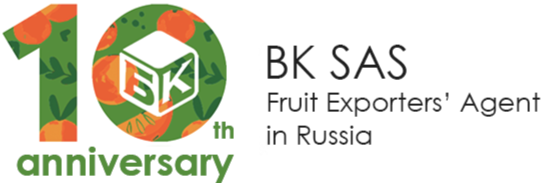Legal representation

Legal representation consists of the following steps:
1. Verification of counterparties
We have connected paid services with which we check statistical reports and company assets. Foreigners are often unable to read Russian financial reporting documents, due to the formatting differences between Russian and international financial statements. We have a dedicated person on the company payroll who understands both of these systems. This means that you can be confident in your partner’s reliability and credibility and will not run into a mala fide counterparty when working with us.
In addition, we check the buyer’s good standing and whether or not he has international insurance from the Federal Anti-monopoly Service.
2. Communication with managers
Some managers are difficult to reach. Knowing the office phone number in Russia is not enough; one also needs to know people’s personal mobile numbers. Calls must be made often enough that managers do not forget that they want to sign a contract at all. Managers are overloaded and often do not respond promptly. This means we must send an e-mail, then call them many times and remind them of the situation. A common conversation could be something like “We sent you the documents a week (a month) ago.” – “Oh, did you really? Ok, I’ll check.” One needs to keep in touch with them all the time. It is not enough to call or write once. Managers may require additional information about a company. We promptly respond to these requests, regularly remind managers of our issues, and request information on the current status of the document consideration. Otherwise, the term of contracting can be significantly increased, since managers are occupied with many issues and are primarily engaged in matters that they have marked as “urgent.”
Most managers have been working in their positions for quite a long time, and we already know them well; it is easier for us than for a stranger to connect with them.
Not all managers speak good English. We often find that many of them use machine translation. It is our role to resolve all issues with a large number of managers. At least one dedicated person in the company is needed to deal with all the issues in Russia.
The time needed to conclude agreements with large retail chains can be up to several months. During this period, we are always in touch and do our best to speed up the conclusion of the contract.
3. Checking all contract terms and explain them to the supplier.
Retail chain contracts are usually very extensive. They might contain more than 50 pages, and important information, such as fines, might not only be stipulated in the “liability” section. They can be found in any page of the contract, so the supplier needs to read everything carefully.
Retail chains have strict contract terms, and most often we do not have the opportunity to change them. The main thing in such a situation is to know about all these terms. On the contrary, when working with wholesalers, we can ask them to change some conditions with which we do not agree. We prepare corrections to the contract and agree on them with the buyer. For example, if the initial payment term was 60 days from the delivery date, we might try to ask for a reduction of the payment period. Then, we could agree on possibility of deviation in weight of the actually delivered goods from the weight agreed in the order. We could also make an amendment that our surveyor shall be called when accepting the goods, that the acceptance is performed jointly, and that our signature is essential.
If the chain is ready to deal with the supplier, it sends a contract template for signing. We check all the terms, penalties, ordering, and delivery terms. Gabriel Berard, the CEO of BK SAS, walks through all of this when negotiating with the supplier on a conference call. It sometimes happens that the formal terms of the contract differ from the actual ones. We explain to our suppliers how things really work.
In addition, the supplier might have questions about the specifics of Russian legislation, and we give advice and comment on them, highlighting certain points on request.
4. Drafting documents
Each retail chain has a list of documents needed for contracts, and the requirements of the different chains vary. We know what these are, so the supplier does not end up receiving unnecessary documents or wasting time and money.
We send requests for any missing documents to suppliers, translate and notarize them, form a package of documents, and then send requests to several retail chains at a time to conclude contracts with our suppliers.
Sometimes, a supplier must complete several forms and questionnaires. We try to do this independently and ask the supplier only for specific information; for example, we might need to inquire about the size of the supplier’s warehouses or refrigeration chambers.
5. Claim and debt management
We handle claims administration.
If a buyer does not pay his debts to the exporter, we strive to settle the dispute through a peaceful claim procedure.
If necessary, we represent the suppliers’ interests in court. In most supply contracts, legal disputes are handled by the Russian arbitration tribunals. On top of buyers do their business in Russia and have open bank accounts on the territory of the Russian Federation. Respectively, debt collection procedures should also be performed in Russia. All this means that it is easier for a Russian lawyer to hold a brief for the supplier and to recover money.



